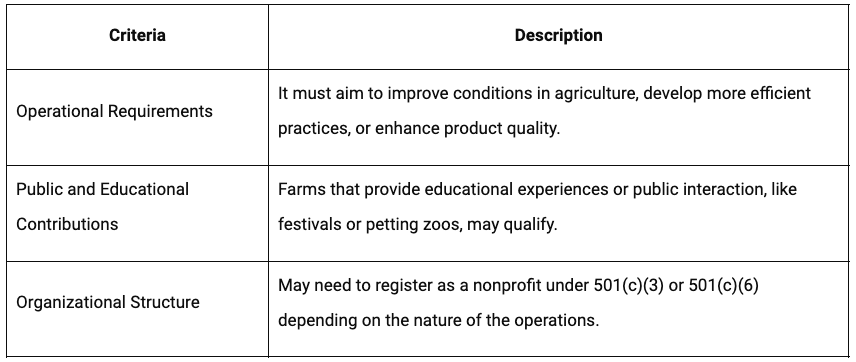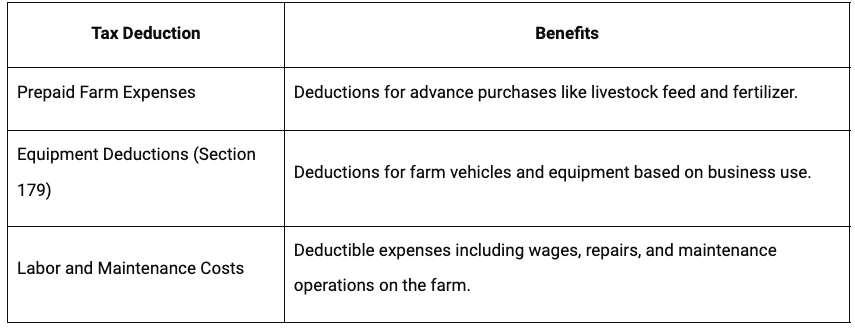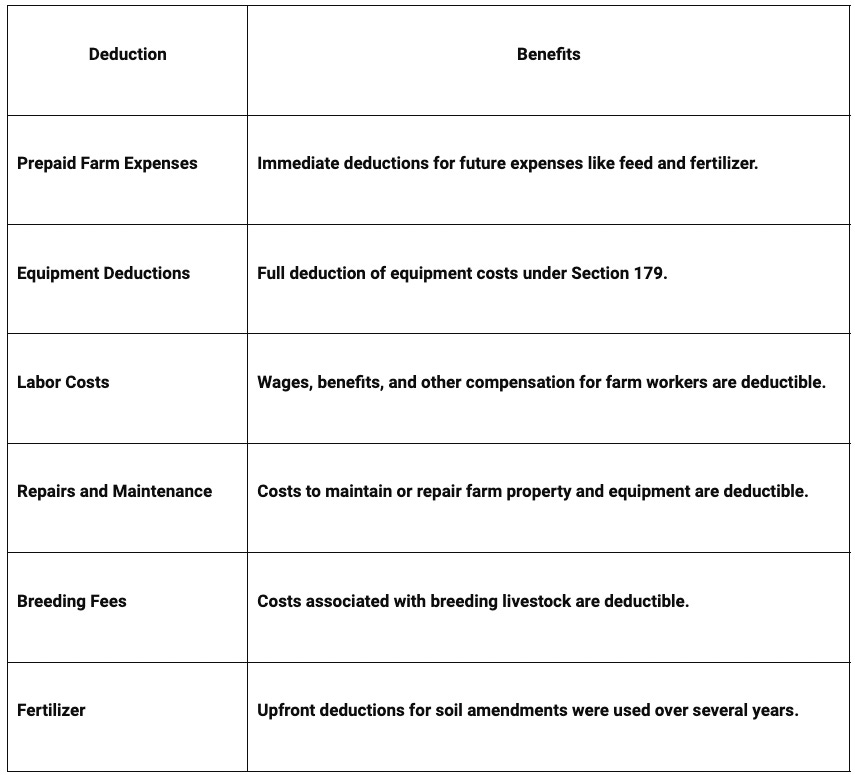Understanding Tennessee Farm Tax Exemptions: A Guide for Farmers and Ranchers
Tennessee's Farm Tax Exemption is a crucial financial resource for farmers and ranchers, offering a tax-free shopping privilege similar to that of nonprofits.
This comprehensive guide delves into the IRS definitions and requirements for qualifying as a farm for tax purposes and outlines the steps to secure your tax exemption, enhancing both the sustainability and profitability of your agricultural operation.
What Qualifies as a Farm for Tax Purposes?
The IRS defines a farm for tax purposes as an operation engaged in raising livestock, harvesting crops, or similar agricultural activities. The goal is profitability and continuous involvement in these activities
How to Qualify for a Farm Tax Exemption
The path to qualifying for a farm tax exemption involves several clear steps:
Confirm Your Farm Status:
Ensure your operation fits the IRS's definition by reviewing their "Publication 225, Farmer’s Tax Guide".
Document Your Agricultural Activities:
Keep detailed records of all farming activities, which will be crucial during the exemption application process.
Apply for Nonprofit Status:
If your farm engages in educational or community-oriented activities, consider applying for nonprofit status to maximize tax benefits.
Minimum Acreage For Farm Tax
Contrary to common misconceptions, the IRS does not require a minimum acreage to define a farm. The focus is rather on the nature of the activities and their scope:
Business Approach: The farm must be operated in a business-like manner.
Intent for Profit: There should be a clear intent to make the operation profitable, indicated by time, effort, and investment.
Economic Dependence: The income derived from farming should significantly impact the taxpayer's livelihood.
Tax Deductions and Benefits Overview
Farm Equipment Tax Exemption
Farm equipment purchases can also benefit from tax exemptions. Under Section 179 of the Internal Revenue Code, farmers can deduct the full purchase price of qualifying equipment purchased or financed during the tax year. This is crucial for reducing the gross income on which taxes are calculated.
Farm Tax Deductions
Farm operations benefit from numerous deductions that lower taxable income:
Strategic Tax Planning Tips:
Farm Income Averaging: Spread income over three years to manage tax rates and reduce burden.
Deferred Payment Contracts: Useful for delaying income recognition, and beneficial in varying market conditions.
FAQs About Farm Tax Exemptions
Is there a minimum farm size for tax exemption eligibility?
No, the IRS does not specify minimum acreage; the focus is on the nature and scope of operations.
Can a farm qualify if it has both educational and commercial elements?
Yes, these elements can enhance eligibility for exemptions by demonstrating added value to the community.
Where can I find more detailed information?
The IRS’s "Publication 225, Farmer’s Tax Guide" is invaluable, alongside personalized advice from a CPA knowledgeable in farm taxation.
Conclusion
Embracing Tennessee’s farm tax exemptions can significantly enhance your farm's operational efficiency and economic stability.
By adhering to IRS guidelines and taking strategic steps to qualify, you can ensure ongoing benefits and contribute to the vitality of the agricultural sector. Always consider professional advice to navigate the complexities of farm taxes effectively.




